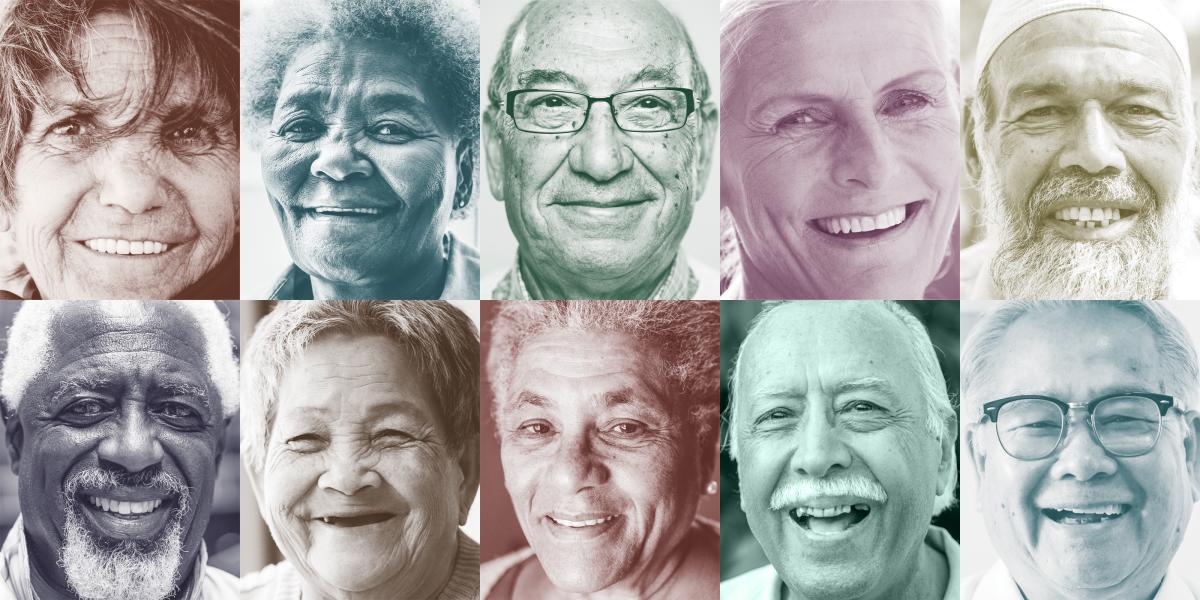The Mysteries of Aging Well
Reducing frailty and disease is just the first step in helping seniors live their best possible lives.
We live in a society that values youth and showers us with anti-aging messages. Young people are celebrated. Older people are mostly pushed to the margins. The media trumpet the latest ways to slow the aging process, while advertisers push products to prevent gray hair and wrinkles. As a result, the bias against aging seeps into social discourse: Hard-working seniors are often asked, “When are you going to retire?” The subtext is often, “You’re getting too old to work.”
But “younger is better” is a misperception. Aging is not something to be feared. It is not a disease. It reflects a lifetime of growth and wisdom.
Fortunately, older adults are living longer and better for the most part. But as with all public health challenges, we still have a lot to learn.
There has never been a more important time to study aging. By 2035, for the first time in human history, the number of adults aged 65 and older will exceed the number of children aged 5 and younger. This critical juncture demands that we improve our understanding of aging so that we can sustain and care for our growing population of seniors in the not-so distant future and beyond.
Adapting to this new reality will bring many challenges. One of the most important is understanding what it means to “age well.” The longer I study aging, the more I appreciate that successful aging is more than the absence of frailty and disease. Older adults say their primary concerns are independence, social engagement, and ability to pursue what matters most to them. This means we need to move beyond traditional assessments of physical and cognitive health to encompass a more comprehensive understanding of the aging process.
Aging is not something to be feared. It is not a disease. It reflects a lifetime of growth and wisdom.
We do know some of the most important factors that influence how we age: what we are born with (our genes), what we are exposed to, and how we care for ourselves through our lifetime. We also know aging begins long before the golden years. Some may argue it starts at birth, while others contend it commences once we reach peak growth and development—in our 20s and 30s. Regardless, we need to intervene earlier in life to prevent poor health in late life. Years of poor lifestyle choices can accelerate the onset of conditions such as osteoarthritis, diabetes, and hypertension in late life. This is not to say older adults can’t benefit from lifestyle modifications. Research such as the Johns Hopkins-led ACHIEVE trial has shown that seniors can be helped by something as simple as using hearing aids. But as many of us will live into our 90s and beyond, it becomes more important to understand how to preserve health later in life through personal health choices (diet, exercise, sleep, cognitive engagement, etc.) as well as equitable access to health services and care.
The good news is evidence shows we are on the right track. Data from another Hopkins-led effort—the National Health and Aging Trends Study—suggest that more older adults are living in community settings and fewer are living in residential care like nursing homes. Extending independence and enabling seniors to stay active and engaged for a longer portion of their lives is a major success. Yet researchers and health care providers still have much to do.
To limit the progression of diseases and conditions associated with aging, researchers, providers, and policymakers need to work as a team. We need to promote the benefits of lifelong healthy lifestyle choices and advocate for better, more equitable access to health care and public services. We need more sensitive tools to help us detect adverse health changes earlier—when treatment and interventions are more likely to be effective. We need more geriatricians, specialized physicians, and nurses with knowledge specific to the complex care needs of older adults. We need to engage older adults as meaningful, vibrant parts of our communities. And we need to promote aging as a positive part of the human experience.
Above all, we need to recognize life is short and every day that we age is a gift. No one is immune to the challenges of aging, but we can minimize and accommodate the physical, cognitive, and sensory impairments that may limit opportunities later in life. Until we unlock all the secrets of successful aging, we have time-tested principles to live by: Keep moving. Stay engaged, socially and cognitively. Live life with purpose and meaning. Take time to breathe, grieve, and seek joy in what matters most.
